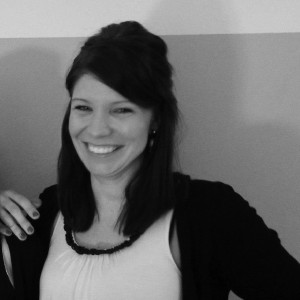Usually we enter a university to learn something. We are there because we want to. And no one can stop us from soaking up the knowledge provided by the teachers; no one but the teachers themselves, ironically.
Recall your school years: you were forced to spend hours of your life on listening to something that seemed to make no sense or to be irrelevant for you personally. You dreamt about the day when you could finally make your own decisions and choose to learn the things you were really interested in. They told you to wait till you were a university student, and here you are with all this freedom of choice. But your reality is still far from your dreams.
No Pedagogues to Hold Our Hands
Let’s face it, university teachers are no high school teachers. We don’t need someone to keep us focused and motivated anymore. We are no longer kids in puberty with limited attention span – we are about to become professionals who have their fate in their own hands.
Being motivated and interested is our own duty, and that of the tea-cher is merely to provide us with knowledge. The pedagogical aspects are not really needed anymore. Nevertheless, the vast differences in the quality of teaching still influence the learning process.
To understand why there is no clear guideline, let’s sketch how a university works. The job of a Faculty is tripartite, being research, teaching, and service. Students’ successful graduation assures financing, in Finland provided by tax payers, as all universities here are public.
In order to assist a successful graduation, professors do not only conduct research, but also pass on their knowledge to the students. It is all intertwined, and yet the biggest background of a professor is usually built on her or his research.
This might create a gap between demand and supply – a professor can be a brilliant mind in a certain field, but can have no idea how to deal with people (especially students).
Being On The Other Side
Probably none of the less perfect ones chooses to be that way. Even though my experience as a teacher is thinly scattered, I also got my two cents on being “on the other side of the room”. It is scarier than you might think; if you are for instance afraid of giving presentations, multiply this fear by a hundred, and there you go.
It seems easy to judge from the audience. In fact, evaluation is not only wished for – at least at the University of Oulu it is common practice to give feedback after a course – but also the only way to help a teacher turn into a better one. Contrarily, anonymous online rating systems with one category being “hotness” seem not very sensible.
Interested, focused students, vivid discussions – these are the lectures both teachers and students dream of. In order to make that happen, not only a good teacher is required, but also good students.
This is what you learn standing on the other side. While it is important that no one is forced to participate, as everyone is responsible for his or her own learning progress as an adult, experienced professors even manage to have discussion rounds in huge lecture halls!
Finnish shyness might be a challenge, but no hindrance – after all, as with everything, practice is what lets us become more comfortable in the situations we fear. This applies for both teacher and student.
A Perfect Teacher – Too Good To Be True?
Good teachers are usually those who passionately teach what they believe in and work with. They have seen theory applied and not spent their entire life in an office over books. They know the problems that can occur, and they understand their audience. They act as a guide rather than as a lecturer, triggering the students to apply the knowledge themselves in order to find a solution.
Yes – they do exist. In my years as a student I had the honor to come across a couple of them, and I might still remember most of their lectures. If you happen to have a teacher who can explain you the most abstract things with real life examples, you probably have found one as well.
And by evaluating your lecture(r)s you help becoming the others a step closer to those – just keep in mind: Constructive criticism is what is always welcome.


